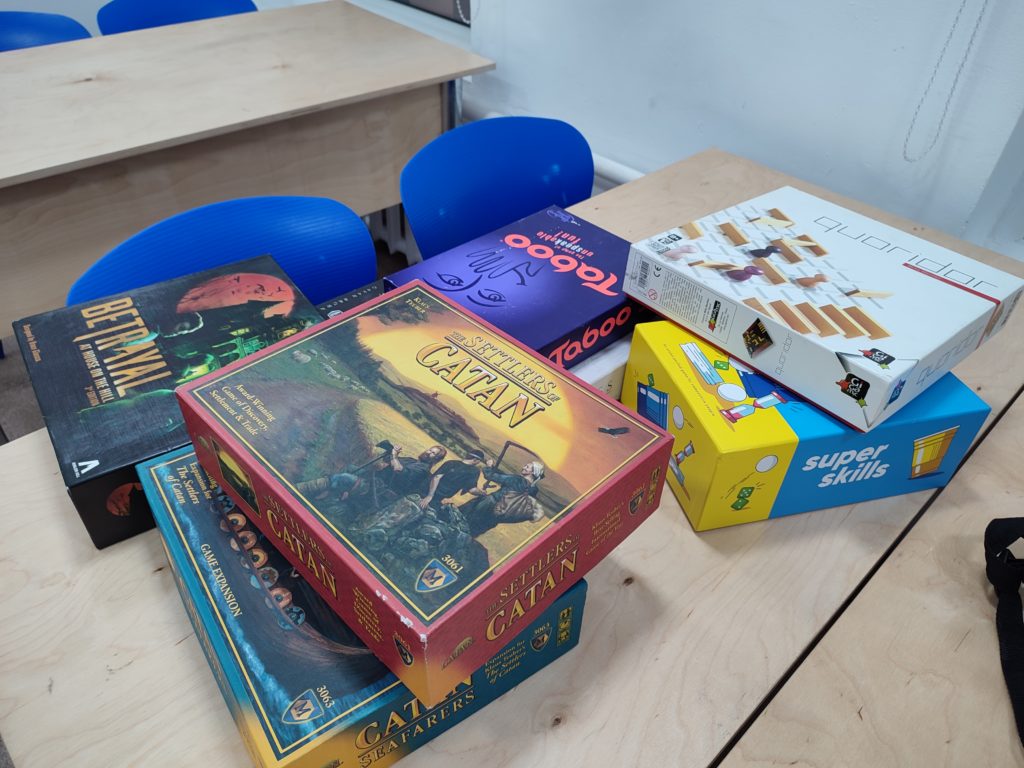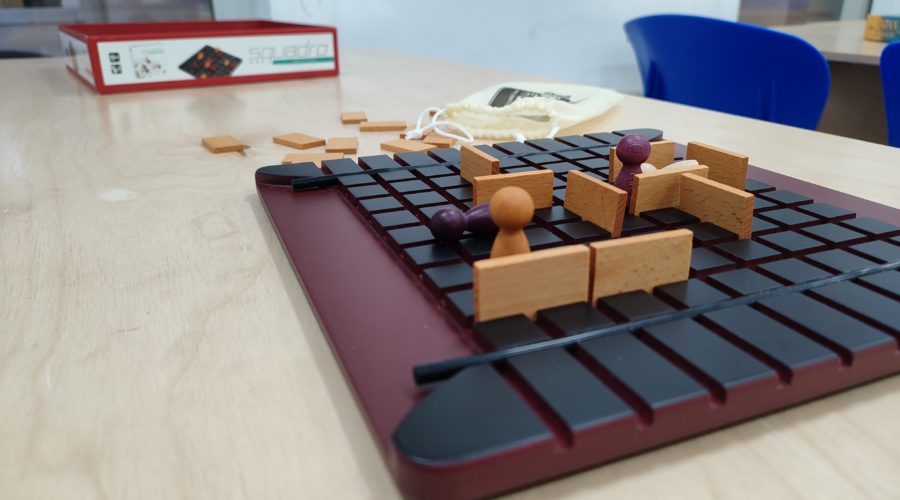Board Game Quoridor
Board Games are a fascinating tool of enjoyment and fun, however is it a distraction or a sense of escape for students who indulge in it everyday? The answer may surprise you
Within the many nights a student may sit wondering about their status as a student, their ability and what all the grades and rigorous structure mean. Within the rigorous school days where school kids realize again and again the hardships an academic environment may bring. Within it all, there is one constant which is prevalent in every student; self indulgence. Many students have their one little cheats. A little side bar chocolate to satisfy the painful mind. For some students it is watching TV, while for others it is to scroll through social media. Some enjoy reading, but there are few students in our school whose ‘cheat’ is a board game.
A Quick understanding
What is a board game? It might sound like a simple question yet nowadays it becomes harder to answer it. Is skipping rocks considered a board game? Probably not, but there are board games with the same premise. Is throwing golf balls into cups considered a board game? You may still answer no, however, there is “Super Skills”, a game with the same idea. The practical definition of a board game is “a game that involves the movement of counters or other objects round a board.” (Cambridge Dictionary), yet I think Cambridge is a bit wrong here. In a more modern, or a more relevant understanding of the word, a board game is a game involving movement and acts to oppose or win a certain objective under rules. The game does not have to be around a board, a tabletop, or a stationary object, it can be anything.
With that out of the way, now how important are board games to students?
From personal experience, board games provide an escape for stressed and anxiety-dead students. The ability to turn off your academic brain for a moment, and become a ravage playing with others is a blissful experience. And I am using the word ‘ravage’ quite literally because most of the games end with bickering and arguments about the results. These ravaging moments are quite crucial for any student, as they provide an escape from the formal needs of an academic environment. In our school, board games are quite common for upper-class students. It is a sight to walk into the Diploma Student Room and see a couple of students ravaging a game. All of these students had expressed their views on the topic, with one saying that

“board games are essential in creating a moment of rest, something like a buffer, in the middle of the day. It acts as a source of motivation, to continue your work knowing you will get to experience a moment of joy, and a means to express your intellectual abilities without being scrutinised for your answer”.
The Board Game Shelf found in the upper-class students’ study room
That last phrase caught my attention, and probably yours too. Board games are not just a mindless escape from the hardships of schools, but an intellectual escape. They provide the opportunity to sharpen your critical thinking and analytical skills without sacrificing your academic conditions. Wait? Does that imply that board games have to become a core component of an education. A core component of an academic life?. No, kinda. As briefly mentioned above, self-indulgence is good, in moderation, but for board games, it is hard to say what level of indulgence is bad. Over-dependence on board games could raise issues of addiction, limit physical activity, and make it hard for students to expand their horizons of friends ( as they are constraining their range to the people playing with them). These are some of the few ways board games could do more harm than good, however moderate consolidation and understanding the importance of breaks could lead to a more healthy indulgence. The very core component of the act requires a higher level of thinking, a faster sense of understanding, and a greater source of communication.

Research conducted by Shota Noda showed how board games have positive effects on students’ educational knowledge, cognitive functions, physical activity, anxiety, ADHD symptoms, and increase personal motivation to do anything they are currently part of (Noda). However, at the same time, the research concluded that the research on board games is limited and the conclusion in the paper is limited. The need for more research, with a higher pool of data and regional, cultural, social, racial, sex, and sexuality variables would provide a more cleared image of the issue. Our social climate, where certain norms are not questioned, may hide certain disadvantages. The games could have been oriented in a way that may do more harm than good to women, queer people, and racial minorities.
Concluding
Board games are still a hard topic to firmly answer in regards to using them as a means to relax and escape academic responsibilities. However, existing research and some student testimonials have shown that controlled, like any other self-indulgence, usage of the games would be highly beneficial.
Resources
“board game.” Cambridge Dictionary. https://dictionary.cambridge.org/dictionary/english/board-game
Noda, S., Shirotsuki, K. & Nakao, M. The effectiveness of intervention with board games: a systematic review. BioPsychoSocial Med 13, 22 (2019). https://doi.org/10.1186/s13030-019-0164-1

